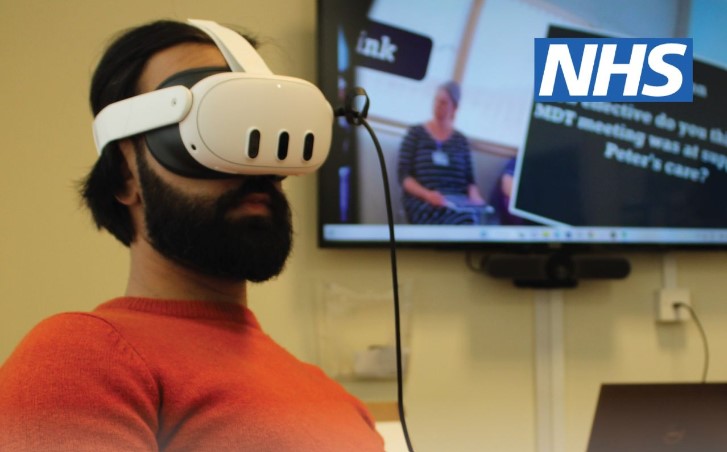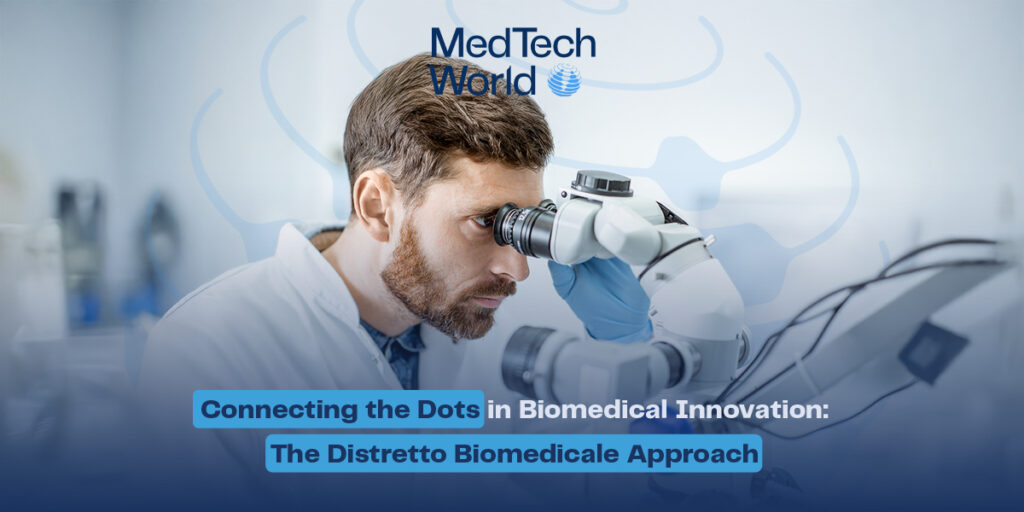
Matthew Calleja
17th July 2024
Balancing Innovation and Ethics in Digital Health – MedTech
Balancing Innovation and Ethics in Digital Health – MedTech Malta 2023
“In today’s digital-dominated healthcare landscape, the road to innovation must be guided by a steadfast ethical compass.”
– Dr. Vo-Reinhard, Co-Founder and Director of dHealth
Since 1990, the global adoption of electronic medical records has skyrocketed, fueled even more by COVID-19’s urgent healthcare demands. While digital platforms promise swift communication, they also spark debates on privacy and equity.
With the WHO’s Third Symposium on Digital Health heading to Malta in 2025 and MedTech World launching in Singapore—a savvy digital health hub, we reflect on a pivotal panel from MedTech Malta 2023, asking the crucial question: Can we navigate the benefits of digital health while addressing ethical concerns about big data in healthcare?

Striking the Balance between Innovation and Ethics in Digital Health
Last year, the Mediterranean Conference Centre in Valletta was abuzz with MedTech Malta, where global experts convened to explore the cutting-edge realm of digital health.
Keynotes and panels delved into digital care innovations transforming healthcare delivery and advancing personalised medicine. Discussions spanned its pivotal roles in primary healthcare, clinical trials, and patient-centric solutions.
In the panel called Ethical Use of Big Data, experts navigated the intricate balance between innovation and responsibility in healthcare’s big data landscape. Moderated by Dr. Quy Vo-Reinhard, Co-Founder and Director of dHealth, the discussion delved deep into these critical intersections.
As a serial entrepreneur with a PhD in Bioinformatics, Dr. Vo-Reinhard brings a wealth of experience as a director in Life Sciences, R&D, Healthcare, Innovation, and Digital Transformation. Currently focused on Blockchain4Healthcare, she advocates for the ethical and equitable use of valuable data, emphasising control over digital footprints.
For the panel, she was joined by fellow experts and executives:
- Jane Johnston | Head of Population Health Management Analytics | NHS Surrey Heartlands
- With 27 years’ experience, Johnston excels in healthcare analytics, strategy development, and team management.
- Daniel Torres Gonçalves | Partner and Lawyer | PRA
- Gonçalves Specialises in Health Law, Pharmacy, Biotechnology, and serves as a Higher Education teacher and researcher.
- Videha Sharma | Clinical lecturer in Health Informatics | University of Manchester, UK
- Surgeon turned innovator, Sharma is bridging healthcare and technology to enhance patient care through emerging innovations.
- Alex Diaconu | CEO and Co-Founder | AiGIA Health
- Diaconu celebrates being a seasoned European entrepreneur with 23+ years in tech (AI, DLT), health (health data, CROs, stem cells), and e-commerce expertise.
Maintaining the patient-doctor dynamic
The discussion kicked off with a crucial reminder that, despite technological advancements, healthcare fundamentally revolves around the patient-doctor relationship.
Daniel Torres Gonçalves emphasised that this relationship must remain grounded in the core principles of medical ethics: respect for autonomy, beneficence, non-maleficence, and justice.
He suggested that:
“AI can revolutionise diagnosis and treatment, but we must never dehumanise the doctor-patient relationship. Ethical principles must guide us from the start of any technological development.”
According to Gonçalves, ethical considerations should be embedded from the outset of any technological development to ensure that these core values are upheld by doctors themselves, maintaining the human side of healthcare.
Building on this, Videha Sharma appreciated Gonçalves’ focus on the four ethical principles and their importance when dealing with sensitive personal data in healthcare. Sharma went further and pointed out the need for a clear distinction between the use of data for direct care and secondary purposes.
“As a clinician, access to data is essential for delivering direct care, an important distinction crucial to a discussion such as ours.”
He argued that most people support data sharing for direct care, recognising its potential to save lives. However, Sharma noted that comfort levels vary when it comes to using data for secondary purposes, such as research or commercial use.
He highlighted the need for transparent communication to ensure ethical innovation that benefits society while respecting individual privacy and consent
Data ownership, limits and privacy
Such considerations will then naturally lead to a discussion of ownership and privacy, as conversations on data often do. Who owns the data, and how much data crosses the line? Addressing the first question, Alex Diaconu emphasised the implications for preventative care and research.
“As long as we don’t have access to our own health data, we are deprived of the right to continuously monitor it and thus to live the longest version of our lives. Once the data is owned and shared, it must be transparently used for innovation and technology.”
Referring to her 30 years of experience in healthcare analytics, Jane Johnston highlighted the NHS’s move towards population health. “In the UK, we’re fortunate to have an NHS number for everyone, allowing us to link huge data sets and create longitudinal records.”
She also raised concerns about privacy:
“The more data we gather, the more people fear that devices like Alexa are constantly listening. It’s crucial to keep the population, patients, and citizens updated on what we’re doing with this data and why.”

Transparency is key to alleviating fears. Health practitioners need to clearly communicate that using this data is for the patients’ own good: their health, and the betterment of their lives.
Staying in command of technology
Finally, it is also important to not simply consider the theoretical benefits of digital health in healthcare, but also visualise practical use cases.
Johnston stressed the critical importance of population health in light of current healthcare system pressures. She underscored the need to move beyond reactive treatment towards proactive strategies using big data and AI for predictive analytics.
“AI is about treating the sick as it’s about preventing illness, safeguarding the nation’s health proactively.”
Diaconu underscored the pivotal role of control in technology, cautioning against its potential to control us. He emphasised the importance for healthcare providers to clarify to users when they are interacting with machines, not humans, and with experimental products, not finalised healthcare technologies.
“Transparency calls for stringent criteria in public use, clearly distinguishing experimental developments from technologies ready for real-world application.”
Find the content of this article on our YouTube Channel

MedTech World in Singapore and Malta!
Summer’s heating up, and so is the excitement for MedTech Malta! Join us in Valletta from November 6th to 8th for our flagship event where healthcare innovation shines. Connect with Key Opinion Leaders and seize premium networking opportunities.
And that’s not all—mark your calendars because MedTech World is making its debut in Singapore this September! Stay tuned for more details and be the first to know all about it.






